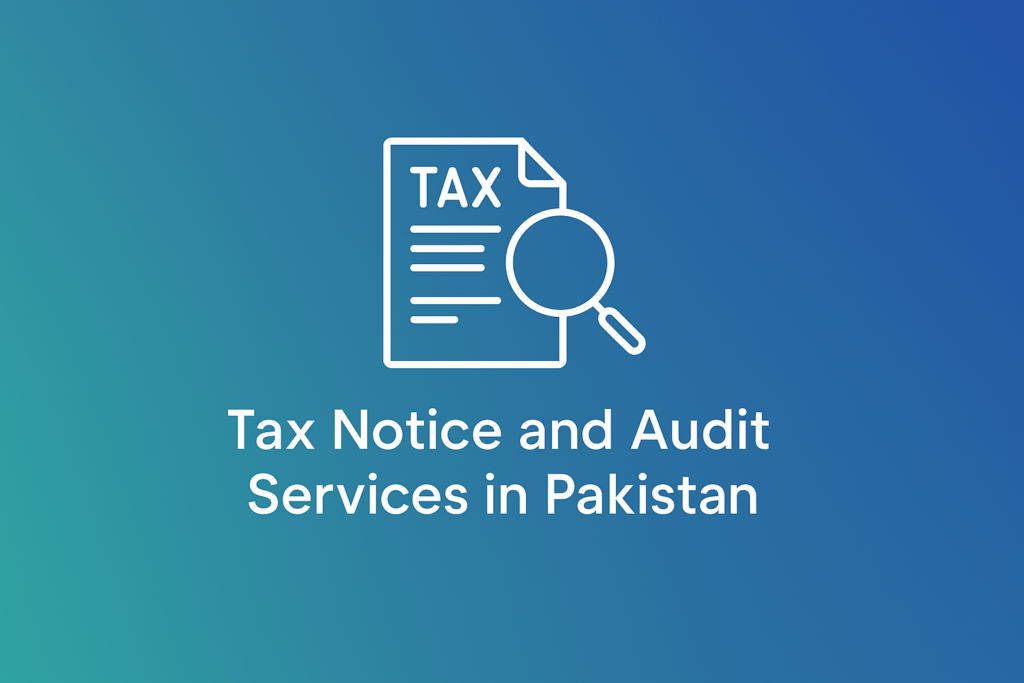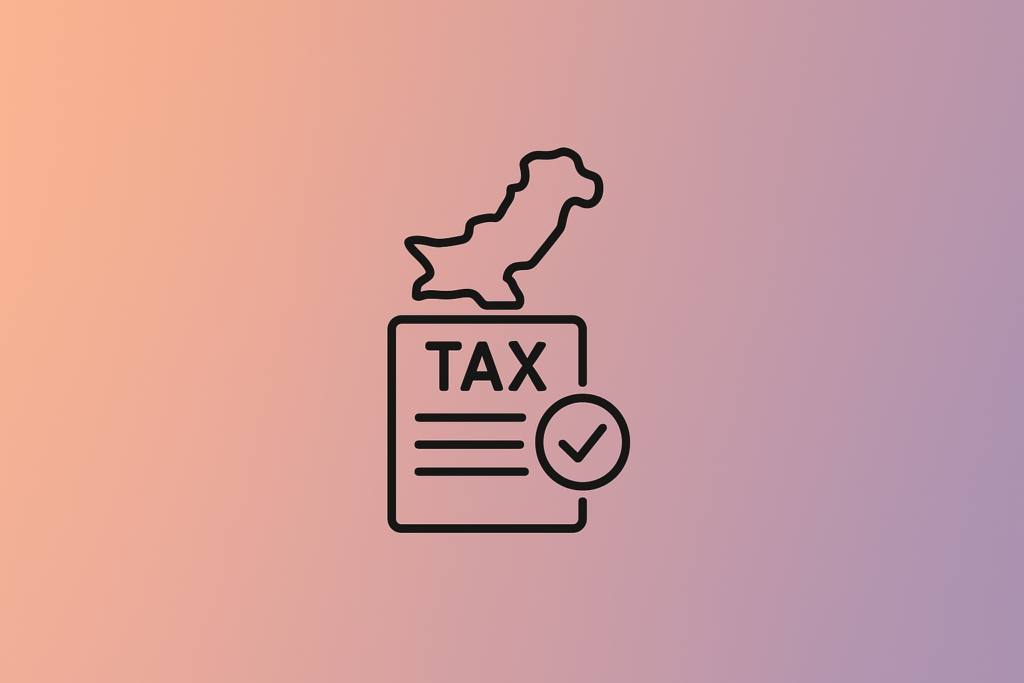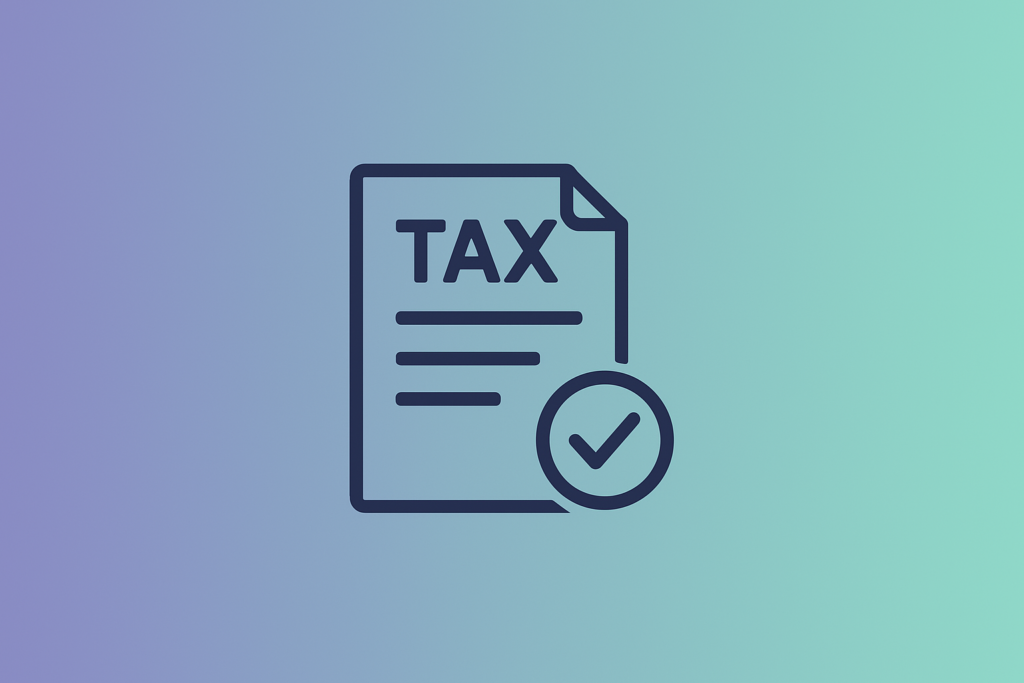Dealing with tax notices can be stressful. Audits are even more daunting.
Understanding tax notice and audit services in Pakistan helps ease the burden. Taxation is a critical aspect of any country’s financial system. In Pakistan, tax compliance is essential for businesses and individuals alike. Receiving a tax notice or undergoing an audit can be overwhelming, especially if you’re unfamiliar with the process.
This blog post will guide you through the importance and scope of tax notice and audit services in Pakistan. We’ll explore how these services work, why they are important, and how they can help you stay compliant with tax regulations. By understanding these services, you can better navigate the complexities of Pakistan’s tax system.
Tax Notices In Pakistan
Dealing with tax notices in Pakistan can be a daunting experience. Whether you’re an individual or a business owner, receiving a notice from the Federal Board of Revenue (FBR) can cause anxiety. However, understanding the common reasons for these notices and knowing the steps to take can help you navigate the process more confidently.
Common Reasons For Tax Notices
Tax notices in Pakistan are often issued for various reasons. One common reason is discrepancies in declared income and actual income. If your declared income doesn’t match the data FBR has, you might receive a notice.
Another reason is missing or incorrect documentation. If you’ve failed to submit necessary documents or if there are errors in your paperwork, FBR may send you a notice to rectify these issues.
Late or non-filing of tax returns is also a significant trigger. If you haven’t filed your tax returns on time, expect a notice from FBR as a reminder or penalty.
Steps To Take When You Receive A Notice
First, don’t panic. Receiving a tax notice isn’t the end of the world. Carefully read the notice to understand why it was issued.
Next, gather all relevant documents. This includes your tax returns, income statements, and any other paperwork related to the notice. Having everything in order will make your response more effective.
Consult a tax professional. If you’re unsure about how to proceed, getting expert advice can save you time and stress. They can help you draft a response and guide you through the process.
Finally, respond promptly. Ignoring the notice won’t make it go away. Address the issues mentioned and provide the necessary documentation to FBR as soon as possible.
Have you ever received a tax notice? How did you handle it? Share your experiences and tips in the comments below!
Types Of Tax Notices in Pakistan
Tax Notice and Audit Services in Pakistan cover various types of tax notices. These include income tax, sales tax, and property tax notices. Each notice requires specific attention and action to comply with legal obligations.
Tax notices can be a daunting experience for anyone, especially if you are unfamiliar with the different types and what they mean. In Pakistan, tax notices can be broadly categorized into Income Tax Notices and Sales Tax Notices. Understanding these can help you respond correctly and avoid unnecessary stress.
Income Tax Notices
Income tax notices are the most common type of tax notices issued by the Federal Board of Revenue (FBR) in Pakistan. These notices can relate to various issues such as discrepancies in your declared income, non-filing of returns, or even random audits.
For instance, you might receive a notice for non-compliance if you missed the deadline for filing your income tax return. In such cases, it’s crucial to act swiftly, providing the required information or filing your return to avoid penalties.
Another common scenario involves discrepancies between your declared income and the information available with the FBR. If the FBR suspects underreporting, they may send you a notice asking for an explanation. It’s essential to review your records and respond accurately to clear up any misunderstandings.
Sales Tax Notices
Sales tax notices are another type of notice you may encounter, especially if you own a business. These notices can arise from issues such as incorrect sales tax returns, discrepancies in tax filings, or failure to pay due taxes.
For example, if you have discrepancies in your sales tax returns, you might receive a notice requesting clarification. This can happen if the FBR’s records don’t match the sales figures you’ve reported. Make sure to double-check your records and provide a clear explanation to resolve the issue.
Sometimes, businesses receive sales tax notices due to late payments or non-payments of due taxes. Such notices usually specify the amount owed and include a deadline for payment. Promptly addressing these notices can save you from hefty fines and legal complications.
Receiving a tax notice can be stressful, but understanding the type of notice and responding correctly can make the process smoother. Have you ever received a tax notice, and how did you handle it? Share your experiences and tips in the comments below!
Responding To Tax Notices
Receiving a tax notice can be stressful. But responding to it promptly and accurately is crucial. Understanding what to do can save you from unnecessary trouble and penalties. Let’s break down the steps involved in responding to tax notices in Pakistan.
Documentation Required
Firstly, gather all necessary documents. This typically includes your tax returns, receipts, invoices, and bank statements. These documents will help verify your financial transactions.
Ensure you keep copies of everything you submit. Missing documents can lead to delays or additional scrutiny. Organizing your paperwork can make the process smoother.
Timelines And Deadlines
Responding within the given timeline is vital. Tax notices usually come with a deadline, often ranging from 15 to 30 days. Mark this date on your calendar to avoid missing it.
Delays can result in penalties or further action from tax authorities. If you need more time, you can request an extension. But this should be done before the deadline.
Have you ever missed a deadline for anything important? It feels awful, right? Missing tax deadlines can be even worse. So, stay on top of the dates.
Responding to tax notices doesn’t have to be daunting. With proper documentation and attention to deadlines, you can handle it efficiently. Are you ready to tackle your tax notice head-on?
Audit Services Overview
Understanding tax audits is crucial for businesses in Pakistan. Audit services ensure compliance with tax laws and help avoid penalties. They also enhance the credibility of financial statements. Let’s explore the purpose and types of tax audits in Pakistan.
Purpose Of Tax Audits
Tax audits verify the accuracy of tax returns. They ensure that taxpayers meet their obligations. Audits also help identify errors or fraud. The goal is to maintain fair taxation and boost public trust.
Types Of Tax Audits
There are several types of tax audits in Pakistan. Field audits involve on-site inspections by tax officers. Desk audits review documents submitted by taxpayers. Correspondence audits are done through written communication. Each type serves a unique purpose and has specific procedures.
Preparing For A Tax Audit
Facing a tax audit in Pakistan requires careful preparation and understanding of tax notice and audit services. Organizing financial documents and consulting with professionals can ease the process.
Preparing for a Tax Audit
Facing a tax audit in Pakistan can be daunting. But, with proper preparation, it can become manageable. Let’s explore how you can gear up for it effectively.
Gathering Necessary Documents
Start by organizing all your financial records.
You need receipts, invoices, bank statements, and previous tax returns.
Properly arranged documents make the audit process smoother.
Hiring A Tax Professional
Consider hiring a tax professional. They can guide you through the audit.
A skilled tax consultant can represent you effectively.
Their expertise can save you from potential pitfalls.
Imagine getting a notice for a tax audit. Panic sets in, right? But if you have all your documents in order, that panic transforms into confidence.
Why stress over missing receipts or confusing statements when you can have everything neatly compiled? This preparation not only speeds up the audit but also reduces errors.
Hiring a tax professional is like having a seasoned guide in a dense forest. They know the way, understand the traps, and ensure you stay on the right path. Their experience can be invaluable, especially if the tax authorities raise complex questions.
Have you ever wondered if you could handle a tax audit on your own? Or would you prefer having an expert by your side? Think about it—peace of mind or potential chaos?
Having a professional also means you can focus on your business rather than fretting over the audit.
Preparing for a tax audit might seem overwhelming, but with the right steps, it’s entirely achievable. So, gather those documents and consider that tax professional.
During The Tax Audit
Tax notice and audit services in Pakistan help ensure compliance with tax laws. Experts handle documentation and represent you during the tax audit. This ensures accuracy and peace of mind.
During a tax audit in Pakistan, it’s natural to feel a mix of anxiety and uncertainty. However, understanding what to expect and how to cooperate can significantly ease the process. Let’s dive into the details to help you navigate this period smoothly.
What To Expect
When the tax authorities select your business for an audit, they will notify you through official communication. This notice will outline the documents required and the time frame for the audit.
Expect a thorough review of your financial records, including income statements, receipts, and invoices. The tax authorities may ask for additional details to ensure accuracy.
It’s not uncommon for audits to span several days or even weeks. Patience and preparedness are key during this time.
Cooperating With Tax Authorities
Cooperation is crucial during a tax audit. Ensure you provide the requested documents promptly. Delays can raise red flags.
Be transparent with your financial information. Hiding details or providing inaccurate data can lead to penalties.
If you’re unsure about any aspect of the audit, seek clarification from the authorities. It’s better to ask questions than to make assumptions.
A personal experience: During my first audit, I was overwhelmed. However, by maintaining open communication and staying organized, the process was less stressful than anticipated. It taught me the value of preparedness.
Remember, the tax authorities are not your adversaries. They are just doing their job to ensure compliance. Your cooperation can lead to a smoother and quicker audit process.
So, what steps will you take to be more prepared for an audit?
Post-audit Procedures
Post-audit procedures are essential for businesses in Pakistan. These steps ensure that any issues raised during the audit are addressed. They also help in understanding the audit findings and taking necessary actions.
Reviewing The Audit Report
After the audit, the first step is to review the audit report. This report includes all findings and observations. It highlights areas of non-compliance and suggests corrective actions. Business owners must carefully read this report. Understanding the report helps in identifying areas that need improvement.
Discuss the report with your team. Explain each finding and its implications. Ensure that everyone understands the importance of compliance. This step is crucial to avoid future issues.
Appealing Audit Decisions
If you disagree with any findings, you can appeal the audit decisions. Prepare a detailed explanation for each disputed item. Provide supporting documents to justify your position. Submit the appeal to the relevant authorities within the specified time.
During the appeal process, communicate effectively with the auditors. Present your case clearly and confidently. This increases the chances of a favorable outcome.
Avoiding Future Tax Issues
Tax notice and audit services in Pakistan can be intimidating. Avoiding future tax issues is vital for peace of mind and financial security. Proper steps and strategies help prevent unnecessary complications.
Maintaining Accurate Records
Keep detailed financial records. Record every transaction, expense, and income. Use reliable accounting software. Organize receipts and invoices systematically. Accurate records ensure transparency.
Update records regularly. Review them monthly. Correct errors immediately. This practice avoids discrepancies during audits.
Regular Compliance Checks
Understand tax laws and regulations. Stay informed about changes. Regular compliance checks are essential. This helps ensure adherence to legal requirements.
Conduct periodic internal audits. Verify that all filings are accurate. Check for missed deadlines. Regular checks reduce the risk of penalties and fines.
Frequently Asked Questions
What Is The Difference Between Audit And Tax Services?
Audit services involve examining financial records to ensure accuracy and compliance. Tax services focus on preparing and filing tax returns and planning strategies.
What Is Tax Audit In Pakistan?
A tax audit in Pakistan is the examination of a taxpayer’s financial records by the Federal Board of Revenue (FBR) to ensure accuracy and compliance with tax laws.
What Is The Penalty For Tax Audit?
Penalties for a tax audit can include fines, interest on unpaid taxes, and potential legal actions. The exact penalty depends on the severity of the discrepancy. Regularly reviewing tax filings and maintaining accurate records can help avoid these penalties.
What Is The Penalty For Not Filing Income Tax Return In Pakistan?
The penalty for not filing an income tax return in Pakistan includes a fine of PKR 40,000 and potential imprisonment.
Conclusion
Navigating tax notices and audits in Pakistan can be challenging. Understanding the process and seeking professional help ensures peace of mind. Proper documentation and timely responses reduce stress and potential penalties. Stay informed and proactive to handle any tax-related issues smoothly.
By taking these steps, you safeguard your business and personal finances. Remember, managing taxes efficiently is crucial for financial stability. Stay vigilant, and keep your records in order. This way, you can face any tax notice or audit confidently.



